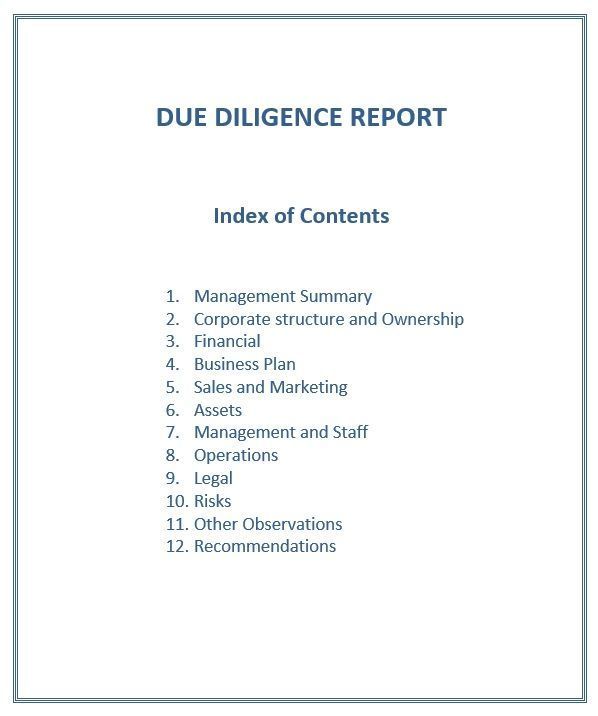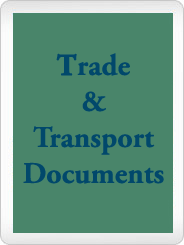Due Diligence is an investigation of a business prior to entering a contract. It often involves a comprehensive appraisal to establish assets and liabilities or to evaluate commercial potential. Though Due Diligence is important anywhere, it is doubly important when dealing with companies in countries where things are often not what they seem and where the legal system is less than ideal.
Due Diligence involves careful investigation of the economic, legal, fiscal and financial circumstances of a business. This covers aspects such as sales figures, shareholder structure and possible links with forms of economic crime such as corruption and tax evasion. A check of this sort is necessary as soon as a company initiates relationships with business partners or plans to buy up another company or a property or make and investment in real estate. A business partner is any party which has business contact with a company regardless of the extent or type of the business relationship; this includes customers, suppliers, subcontractors, sales representatives, advisors and partners in joint ventures as well as small service providers, intermediaries and investors.
A Due Diligence is needed for all companies and organizations if they engage in company acquire stakes, property, real estate, investment, investors or insurance transactions in other companies, or If they work with business partners, especially in an international context. Failing to undertake foreign company, Due Diligence is usually a factor, if not the decisive factor, in losses suffered by companies doing business internationally.

THE DUE DILIGENCE PROCESS
Identification
The Due diligence process typically starts with identification. The most important information is collected directly from the future partner or via a third party. Simple questionnaires can be used for this purpose.
In the case of incorporated companies, the information collected includes details of the company, shareholders, beneficiaries, group structure, and members of the board and their political links. Official documents and contracts may also be requested at this stage.
Sanctions list check
The second step involves cross-checks with global sanctions lists such as lists relating to prosecutions, disqualification and individuals named by government agencies are also consulted. Frequently, too, companies have lists of other companies with whom they do not wish to do business.
Risk Assessment
On the basis of the results of the investigations, the risk assessment is now performed and a risk-based approach is drawn up.
What form of due diligence is appropriate depends on the specific situation, transaction and the risk of the business involved. The three most common types of documents for Due Diligence are: Due Diligence Checklist, Legal Due Diligence and Due Diligence Report.
DUE DILIGENCE CHECKLIST
The Due Diligence Checklist is a document designed for use when one company needs to request documents for another in connection with a due diligence procedure prior to a proposed transaction for the sale and purchase of a business.
The document provides a straight-forward, customizable form of a due diligence checklist, intended to provide an initial request list of documents in categories such as: corporate, management team, legal issues, business plan, financial, etc. Additional categories may be added as necessary depending on the nature of the due diligence in question.
Due Diligence Checklist Template
LEGAL DUE DILIGENCE
Legal Due Diligence is usually the preliminary step taken by an investor intending to enter into an asset or share sale transaction, M&A, partnership, etc. The purpose of a legal due diligence is to assess the potential risks of a transaction by investigating the obligations and liabilities of the target company. This provides objective and reliable information to a potential purchaser as to whether to proceed with the transaction, exclude or limit the risks, and negotiate warranties or the purchase price.
The document provides a straight-forward, customizable form of legal due diligence and covers the investigation of areas such as: share capital and shareholders, corporate structure, legal compliance, licenses and litigation, intellectual property rights, company contracts, taxation, properties, etc. Additional areas should be added as necessary depending of the nature of the due diligence in question.
DUE DILIGENCE REPORT
The Due Diligence Report provides a detailed summary of the checks and also records the process involved. The scope of the report varies from case to case. Sample reports are available as templates. The report serves as evidence of compliance with due diligence requirements.
The document is used in the case of a company that is for sale or considering a merger or the acquisition of another organization. The findings of the research and analysis are summarized in a report which is known as Due Diligence Report. This document is sent as an internal memo to member of the executive team who are evaluating the transaction and is a requirement for closing the deal.
The Report focuses on corporate structure, the company’s financial data, information about business operations and sales and marketing analysis. It also includes data about management staff, risks, legal issues, etc. Additional categories should be added as necessary depending of the nature of the due diligence in question.
 As mentioned above, the Due Diligence is a document that is used in the preliminary phase of mergers and acquisitions (M&A), investment, partnerships as well as purchase of a business. To obtain other documents and contracts used in this type of operations click here:
As mentioned above, the Due Diligence is a document that is used in the preliminary phase of mergers and acquisitions (M&A), investment, partnerships as well as purchase of a business. To obtain other documents and contracts used in this type of operations click here:




